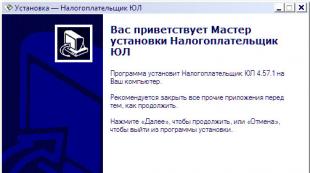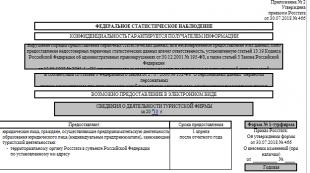Sheikh al-Qaradagi: Russians are closer to us, Arabs, than any other nation. How Islamic banks can help the Russian economy
In the past days, Dagestan visited general secretary World Council of Islamic Scholars Sheikh Ali Al-Karadagi. As part of the visit, the sheikh held Friday sermons and prayers at the Central Juma Mosque of Makhachkala, a press conference at the National Library, as well as personal meetings with Islamic youth. Journalist Abdulmumin Hajiyev visited these events and shares his impressions.
The organizers did their best to present the Sheikh's visit as unconditional support for the ongoing policy in the region regarding the growing Islamic sentiment. No one knew in advance that Al-Qaradagi was going to come to Dagestan; all the theses with which the sheikh arrived were reduced to the fight against terrorism and extremism; only representatives of the official clergy and accredited journalists were invited to the press conference, among whom were not, for example, Abasa Kebedova, who was the first to express the idea of inviting scientists of the World Islamic Council to the republic (in fact, this idea was stolen from him and transferred to the state rails). After all, Kebedov speaks Arabic well and has a desire to talk about the real problems of the republic, which was clearly not part of the organizers' plans.
Difficulties in translation
In fairness, it should be noted that meeting with him was not as difficult as expected, and the organizers did not set up any obstacles for this. However, perhaps the sheikh himself insisted on this.
Why did Al-Qaradagi come?
We conveyed to the sheikh how his visit to us is presented by the official media, and what ordinary Muslims think about it, which such an approach encourages to doubt and distrust Islamic scholars. The sheikh said that he did not come to support the authorities or law enforcement agencies, that he came to try to influence them, as well as to establish contacts with Islamic youth. “There are only two options before me: either not come at all, or come and try to influence the situation, bring some benefit. We do not depend on anyone and do not have any personal benefit from this. Sheikh said.
He also understood perfectly well that only representatives of the official clergy were present at the conference. For this reason, Al-Qaradagi was cheered up and delighted to hear, as he put it, "other voices", immediately thanking the organizers of the meeting for the fact that these "other voices" were admitted to it (albeit with great difficulty). And the questions of "other voices" were as follows:
“Dear Sheikh, what do you think about terror by the security services? For example, this year alone, more than a hundred young Muslims were kidnapped, killed and imprisoned without trial or investigation. Hijab is also prohibited in our schools. You come to Russia and Dagestan and sit with government officials and official Ulama and do not meet with da’vatchiks (leading the call to Islam - ed.). Do you discuss these issues with them? May Allah reward you".
The Sheikh was also asked about where the boundaries of extremism lie, is it extremism to call for the implementation of Sharia, for Sharia courts, and is it extremism to wear a hijab in schools?
Al-Karadagi replied that he had talked with officials on this subject and noted that one of the main causes of extremism was the terror of the authorities. The Sheikh also said that calling for the application of Sharia is not only not extremism, but is the duty of a Muslim in the unanimous opinion of all scholars, noting that such a call should be reasonable, and the establishment of Sharia should be gradual. The translator tried to distort the words of Al-Qaradagi, however the author of the question drew the sheikh's attention to this. These questions were completely cut from the official video reports from the meeting.
It is also interesting that the Sheikh does not consider the forest underground "terrorists" and "Kharijites". Instead, he considers the militants to be "his sons" and "part of the ummah of Muslims," with whom he disagrees on the methods of establishing sharia. At the same time, the Sheikh calls on all Muslims to unity on the basis of the Koran and the Sunnah.
What surprised Al-Qaradagi?
The sheikh was very surprised that the imam Muhammad ibn Abdul Wahhab(may Allah have mercy on him) is considered by the official clergy of Dagestan to be an English spy. He also said that he noticed how many do not like Sheikh-l-Islam Ibn Taymiyyah(may Allah have mercy on him), whom he constantly referred to in his speeches. The Sheikh noted that he loves Ibn Taymiyyah very much and draws a lot of useful things from his works. Let me remind you that in the official clergy of Dagestan it is customary to vilify this great scientist, and some even go so far as to accuse him of hypocrisy.
The sheikh was greatly indignant and surprised at how, from the translation of Al-Vasatiya Ali Polosina of the text of the Moscow Declaration, entire paragraphs about jihad and the caliphate, written by him, were thrown out, and some expressions were severely distorted.
Al-Qaradagi, mindful of the conference in Moscow, emphasized that he had not given any fatwas now, and these were just meetings and appeals. What is at odds with the information disseminated by the media.
Speaking about the relative religious freedom in Russia, the sheikh was not aware of the prohibitions on the hijab.
Thus, apparently, the authorities are more interested in justifying their policies with the words of Islamic scholars than in listening to and accepting their advice. How else to explain all these countless reports in the official media, presented as in the days of the Soviet Union? Let's hope that the guests themselves will draw the appropriate conclusions for themselves and change the conditions of their visits to our region.
An international conference was held today in Makhachkala, to which the famous Islamic scholar Sheikh Ali Muhiddin Al-Qaradaghi, who led the delegation of the World Union of Muslim Scholars, was invited.In addition, the event was attended by Ali Vyacheslav Polosin, Chairman of the Al-Vasatiya Russian Center, Alexei Sikorsky, Director of the Non-Profit Charitable Foundation for the Support of Islamic Culture, Science and Education, representatives of the Department for Cooperation with Religious Organizations of the Office of the President of Russia and other public figures, mufti of Dagestan, leaders of youth and religious communities of Dagestan. The head of Dagestan, Magomedsalam Magomedov, also participated.



Highly good advice Sheikh Al-Karadagi gave to officials, youth and those who are confused in understanding this or that life moment. Here is part of his speech:
It is understandable that many skeptical Muslim or non-Muslim observers will say that such events are a waste of time, that they are of no use. But I still think that, on the contrary, it is important and necessary to hold conferences of this format. Especially when such honored guests and famous Islamic scholars are invited to them.
For example, the day before yesterday, on November 15, an important meeting was held in Nalchik, which was attended by Muslims from Azerbaijan, the heads of the North Caucasus Spiritual Muslim Board, Islamic scholars, experts, and well-known Islamic scholars. A fairly rare event for a republic where relations between the authorities and the Muslim community can hardly be called ideal.
Too few international events are held in the North Caucasus. Meanwhile, the problems of the Caucasus are not exclusive; they are quite widespread in other regions as well. Here, the experience of Muslim countries in establishing an intra-communal dialogue can be very useful and productive.
News from Muslim republics
02.11.2014The head of Ingushetia, Yunus-Bek Yevkurov, met on Saturday with a delegation of the World Union of Muslim Scholars headed by Sheikh Ali Muhiddin al-Qaradagi.
 The head of Ingushetia noted the importance of the visit of the delegation of the Council. “I sincerely welcome you to our land. It is a great honor for us to receive a delegation of the World Union of Muslim Scientists who arrived with a peacekeeping mission. You show the whole world the true face and purity of the thoughts of Islam. Your participation in international conferences and various discussions is very important. Listening to your sermons, people find answers to their questions and hear the truth about their religion,” said Yunus-Bek Yevkurov.
The head of Ingushetia noted the importance of the visit of the delegation of the Council. “I sincerely welcome you to our land. It is a great honor for us to receive a delegation of the World Union of Muslim Scientists who arrived with a peacekeeping mission. You show the whole world the true face and purity of the thoughts of Islam. Your participation in international conferences and various discussions is very important. Listening to your sermons, people find answers to their questions and hear the truth about their religion,” said Yunus-Bek Yevkurov.
According to him, the current visit is an introductory one, during which guests will see the sights of the republic, get acquainted with the Ingush culture and traditions, visit historical places, relax in nature. But soon a scientific-practical Islamic conference will be held in the republic with the participation of the HCMU.
Secretary General of the World Union of Muslim Scholars, Sheikh Ali Muhyiddin al-Qaradagi said that today's visit is the beginning of a long journey. “We are proud to meet people who deeply honor and observe their traditions. And the nature of your region fascinates at first sight,” he said.
Karadagi noted the priority of work with youth. “Young people today receive various information through the Internet. Radical groups are active through the worldwide network and thus contribute to the involvement of young people in their ranks. Our mission is very important for the ideological and spiritual development of the younger generation,” sheikh said.
“The Arabs have a proverb: they knock out a wedge with a wedge. Extremist groups recruit youth into their ranks on the basis of ideology. Accordingly, it is necessary to counter this with serious ideological work aimed at building peace and good neighborliness,” he stressed.
“We created the World Union of Muslim Scholars, which in a short time has earned the trust of millions of people throughout the Islamic world. Our independent organization brings together all the Ulama of different levels and has more than 90,000 people. The essence of the organization's activity is to find acceptable solutions to people's pressing issues,” Ali al-Qaradagi said.
Earlier, a delegation of the World Union of Muslim Scholars visited Nalchik, where they held a series of lectures and seminars with a youth audience. Meetings with representatives of the younger generation were held at the Kabardino-Balkarian University, the Islamic University named after Abu Hanifa, in the cathedral mosque of Nalchik, as well as within the framework of the international interfaith conference held in the capital of the KBR.
We bring to your attention the speech of Sheikh Ali Muhyiddin Al-Karadagi, in which he condemns religious extremism and strongly recommends that the militants recognize the fallacy of their deeds and return to the true path of Islam - the path of peace and goodness.
Speaking at the International Theological Conference in Makhachkala in 2012 as part of a discussion of the problem of terrorism and religious extremism in the North Caucasus, Sheikh Ali Muhiddin Al-Qaradagi said the following:
“Arab-Islamic Muslims in our Islamic world have been known to continue to live under occupation and colonialism for about three decades. Before they had time to free themselves from the colonialists, in most countries they were replaced, to our great regret, by their agents, who behaved worse than the colonialists. They enforced Western laws and regulations and enforced Western practices.
The colonialists and their agents do not allow the Islamic Ummah to return to their glory, strength and civilization, using all direct and indirect means, including through movements of extremism and violence, in our Islamic world, which has perverted the beauty and tolerance of Islam and made it possible to indiscriminately divide Muslims on those who are right and those who are wrong. These movements of extremism and violence at first declared others in disbelief and depravity, and then they began to blow up. All this ended in great confusion.
In such a dangerous situation for Muslims, a great responsibility before the Almighty Allah, and then before their peoples and the next generations, falls on the shoulders of Ulama, thinkers and politicians. It should be noted that those radical people are Muslims who erred in their zeal, like those of their brothers who opposed our master Ali, may Allah favor him! Then the learned man of the nation, Abu Abbas, went to them and discussed with them. As a result, many of them returned to the bosom of truth. So did the brothers from the al-Jihad Movement in Egypt. As a result of talks with them by Sheikh Muhammad al-Ghazali and Sheikh ash-Shaarawi and others, they returned and wrote statements of renunciation of their delusions.
I say to all young people: take advantage of this experience and learn from the rejection statements that were written by radical young people in Egyptian prisons. These statements amounted to 17 volumes. And don't repeat those mistakes.
Brothers and sisters! The Holy Quran explains very clearly that Allah created man for creation and development, but not for destruction. Allah says: “He created you from the earth and settled you on it” (Sura “Hud”, ayat 61).
Our religion is the religion of science, the religion of a just world. The Almighty says: “If they incline towards the world, you also incline towards the world” (Sura Al-Anfal, ayat 61). Therefore, Islam wants to acquire not enemies, but friends.
Islam brought the People of the Book, especially Christians, closer to Muslims. Even the Companions of the Messengers were worried when Christian Rome was defeated by the fire worshipers. The Almighty said: “The Romans are defeated in the lowest (or nearest) land. But after their defeat, they will prevail in a few years. Allah has made decisions before and will make decisions after this. On that day, the believers will rejoice in the help of Allah. He helps whoever he wants. He is the Mighty, the Merciful, (Sura Ar-Rum, verses 2-5). The Almighty said: “You will certainly find that the closest in love to believers are those who say: “We are Christians.” This is because among them there are priests and monks, and because they do not show arrogance ”(Sura Al Maida, verse 82).
Then Islam tried to bring all people closer, even atheists, by searching for a common truth. So the Almighty said: “Verily, some of us are either on the straight path or in obvious error” (Sura “Saba”, ayat 24). In addition, the Qur'an emphasizes immutable things that are common to all the children of Adam in origin and nature and the presence of a breath of the spirit of Allah Almighty in every person. Therefore, He ordered us to apply the piety and virtue that was applied to parents, to all people of religions who did not attack us. The Almighty says: “Allah does not forbid you to be kind and just with those who did not fight you because of religion and did not drive you out of your dwellings. Indeed, Allah loves the impartial.” (Sura Al-Mumtahina, verse 8)
Your religion is also the religion of civilization and progress. You must not be backward. You must follow the path of constant progress. The Almighty says: “in order to test you and see whose deeds will turn out to be the best” (Sura Al-Mulk, verse 2). All the verses of the Qur'an emphasized that a Muslim should follow the best morality, adhere to the best of what was sent down.
Speak using the best words, treat people in the best way. The Almighty said: “Good and evil are not equal. Repel evil with what is better, and then the one with whom you are at enmity will become for you like a close loving relative ”(Sura Fussilat, ayat 34).
Finally, I have advice for the peoples of the Caucasus and all Muslims in Russian Federation who play a huge role in Islamic civilization and Islamic sciences - to take care of global development and scientific progress, guided by moderate Islamic thought - wasatiya. Especially when you consider that these peoples are still experiencing the remnants of communism and backwardness, therefore, they must develop a strategic development plan in all areas, a strategy for scientific progress and a development strategy modern technologies and agree on unshakable principles common to Islam and move away from extremes, extremism, declaring others as depraved and unbelievers.
Enough disagreements, disunity, ideological, political and military battles. What benefit did all this bring to these peoples? All this led only to tragic consequences!
In our opinion, the Moscow Declaration, which was adopted by the World Council of Muslim Scholars together with the Ulama of this region, fixed, as it were, unshakable Islamic principles. If the work goes in accordance with them, then it would solve many problems, with the permission of Allah.
We pray to Almighty Allah in every possible way to help us, together with you, achieve the rise of this ummah and that we be honored to participate in it. Peace be upon you, the mercy and blessings of Allah,” the sheikh concluded.
Islamic Scholars Adopt Fatwa Recognizing No Causes for Jihad in the Land of MountainsWith the stubborn silence of the Russian media in Dagestan, a rather significant event for local Muslims and for the authorities took place last weekend. On Saturday in Makhachkala, during the All-Russian Theological Conference with the participation of representatives of the World Union of Muslim Scholars, an Islamic decree was adopted - a fatwa, which recognizes Dagestan as a territory of peace - Daru-s-salaam.
This term from Muslim law means that in this territory there is no place for an armed struggle of Muslims with each other and with representatives of the authorities. However, the official and unofficial versions of what happened in the republic differ greatly. In this material - a comparison of both versions.
Official Information
According to official Dagestan media, the conference held in the republic is a continuation of the one that was already held in Moscow in the spring. Recall that in May of this year, the International Theological Conference "Islamic Doctrine Against Radicalism" was held in Moscow.
That event was attended by about 40 foreign Islamic scholars from Arab countries, Turkey, Albania, Afghanistan and the CIS countries. That conference ended with the adoption of the Moscow Theological Declaration condemning the misinterpretation of the Islamic terms "takfir", "jihad" and "caliphate".
This time, the Secretary General of the Union, Sheikh Ali Muhyiddin al-Qaradagi, flew to Russia, as well as a number of other religious figures: a member of the Executive Committee of the Union, Sheikh Abd al-Rahman bin Abdallah al-Mahmud and the Executive Director of the Union, Maulai Rashid Umri Alavi.
According to republican media, they came to Dagestan at the invitation of President Magomedsalam Magomedov. And, according to him, such a solid delegation of world scientists visits the region for the first time in modern history.
Debate on Jihad
Magomedsalam Magomedov, according to official media, expressed confidence that there are no conditions for jihad in Dagestan. In his opinion, it cannot be said that believers are infringed on their rights: thousands of mosques and dozens of Islamic educational institutions have been built, believers go to the Hajj, Islamic programs are shown on television ...
However, as he stressed, recently the region "is facing manifestations of extremism and terrorism, new dangerous challenges in the spiritual and ideological spheres that threaten the safe and sustainable development of our republic."
Sheikh Ali Muhyiddin al-Qaradagi, in his response, supported the President's intentions to stabilize the situation in the region and gave some advice to politicians of the republic and young Muslims inclined to radical opinions in Islam, and asked them to adhere to them.
Appeal to the "forest"
Sheikh Ali Muhyiddin al-Qaradagi also said: “Our advice to politicians is this: be patient and actively involve Islamic scholars who are strong in their knowledge in conversations with them. An idea can be corrected only with the help of an idea, or, as they say, a wedge is knocked out with a wedge. And to those young people I want to advise the following: we, the scientists from the World Council of Muslim Scientists, consider you as our sons. You are pursuing a noble goal, but the error is in the means. As long as Islam is your source, it is your Shariah duty to appeal to strong and moderate scholars.”
He urged young people to "give up radical beliefs." “Take advantage of the experience of hot young people in Afghanistan, finally in Chechnya. Everyone knows that it was their cruel behavior that led to the fall of the Taliban state. All the blood shed in Egypt did not lead to anything noticeable.
Change was achieved through peaceful revolutions carried out in accordance with a moderate peace program. Take advantage of this experience and learn from the rejection statements written by radical young people in Egyptian prisons. These statements amounted to 17 volumes. And do not repeat these mistakes,” Sheikh al-Qaradagi said.
Fatwa to the authorities
The main final event of this conference was the adoption of a fatwa that condemns extremism and states that "the Republic of Dagestan is a territory of the world, and there are no prerequisites for waging jihad."
The idea of holding an all-Russian theological conference was first voiced at the third congress of the peoples of Dagestan, and now it has come true. For the region, this is a very important event, the role of which is simply impossible to overestimate, said Minister for National Policy, Religious Affairs and Foreign Relations Bekmurza Bekmurzaev.
This fatwa, according to media reports, “very accurately and clearly proclaimed Dagestan Daru-s-salaam, that is, the territory of the world. This means that there are no grounds for jihad, the killing of Muslims and non-Muslims. This fundamental decision must be made and implemented by all who consider themselves Muslims, scholars of the Ulama say.
Describing the fatwa and resolution, which were the result of the two-day stay of the Ulama, the Dagestan theologians claim that this document was expected. The fatwa, in their opinion, will be "a response to the actions of a number of extremist leaders who hide behind Islamic slogans," writes RIA Dagestan.
However, Muslim activists and journalists of Dagestan hold somewhat different assessments of the conference held in the republic. Thus, the author of the "Draft" Abdulmumin Gadzhiev writes on the website Wordyou.ru that the organizers of the event did everything possible to present the visit of the sheikh as unconditional support for the policy pursued in the region regarding the growing Islamic sentiment.
“No one knew in advance that Al-Qaradagi was going to come to Dagestan; all the theses with which the sheikh arrived were reduced to the fight against terrorism and extremism; only representatives of the official clergy and accredited journalists were invited to the press conference, among whom were not, for example, Abbas Kebedov, who was the first to express the idea of inviting the scientists of the World Islamic Council to the republic (in fact, this idea was stolen from him and transferred to state rails) . After all, Kebedov is fluent in Arabic and has a desire to talk about the real problems of the republic, which was clearly not part of the organizers' plans,” Hajiyev writes.
According to him, it was with great difficulty that representatives of Muslim youth managed to attend the conference and ask questions, which, as he notes, did not find any coverage in the official media. The meeting was presented in the form of a communist congress, at which everyone in turn condemned extremism and terrorism.
Reach out to Karadag
Further, talking about his breakthrough to the conference, Gadzhiev writes: “We conveyed to the sheikh how his visit to us is represented by the official media, and what ordinary Muslims think about it, which such an approach pushes to doubt and distrust Islamic scholars” .
According to him, the sheikh said that he did not come to support the authorities or law enforcement agencies, that he came to try to influence them, as well as to establish contacts with Islamic youth.
He also, according to Gadzhiev, was well aware that the conference was mainly attended only by representatives of the official clergy. For this reason, Al-Qaradagi was cheered up and delighted to hear, as he put it, "other voices", immediately thanking the organizers of the meeting for the fact that these "other voices" were admitted to it (albeit with great difficulty).
And the questions of "other voices" were as follows. What does the guest think about the terror by the special services against practicing Muslims? Does he know about the hijab ban in Russian schools? Is it extremism to call for the implementation of Sharia, for Sharia courts, and is it extremism to wear the hijab in schools?
The position of the sheikh and the conclusions of the Muslims
Al-Karadagi, according to Hajiyev, replied that he had talked with officials on this topic and noted that one of the main causes of extremism was the terror of the authorities. The Sheikh also said that calling for the application of Sharia is not only not extremism, but is the duty of a Muslim in the unanimous opinion of all scholars, noting that such a call should be reasonable, and the establishment of Sharia should be gradual.
It is also interesting, the author notes, that the Sheikh does not consider the forest underground "terrorists" and "Kharijites". Instead, he considers the militants to be "his sons" and "part of the ummah of Muslims," with whom he disagrees on the methods of establishing sharia. At the same time, the Sheikh calls on all Muslims to unity on the basis of the Koran and the Sunnah.
The sheikh was greatly indignant and surprised at how entire paragraphs about jihad and the caliphate, written by his hand, were thrown out of the translation of Al-Vasatiya by Ali Polosin of the text of the Moscow Declaration, and some expressions were severely distorted. Speaking about the relative religious freedom in Russia, the sheikh was not aware of the prohibitions on the hijab.
Thus, Hajiyev concludes, it is clear that the authorities are more interested in justifying their policies with the words of Islamic scholars than in listening to and accepting their advice.
Tamila Shakhbanova
journalist









